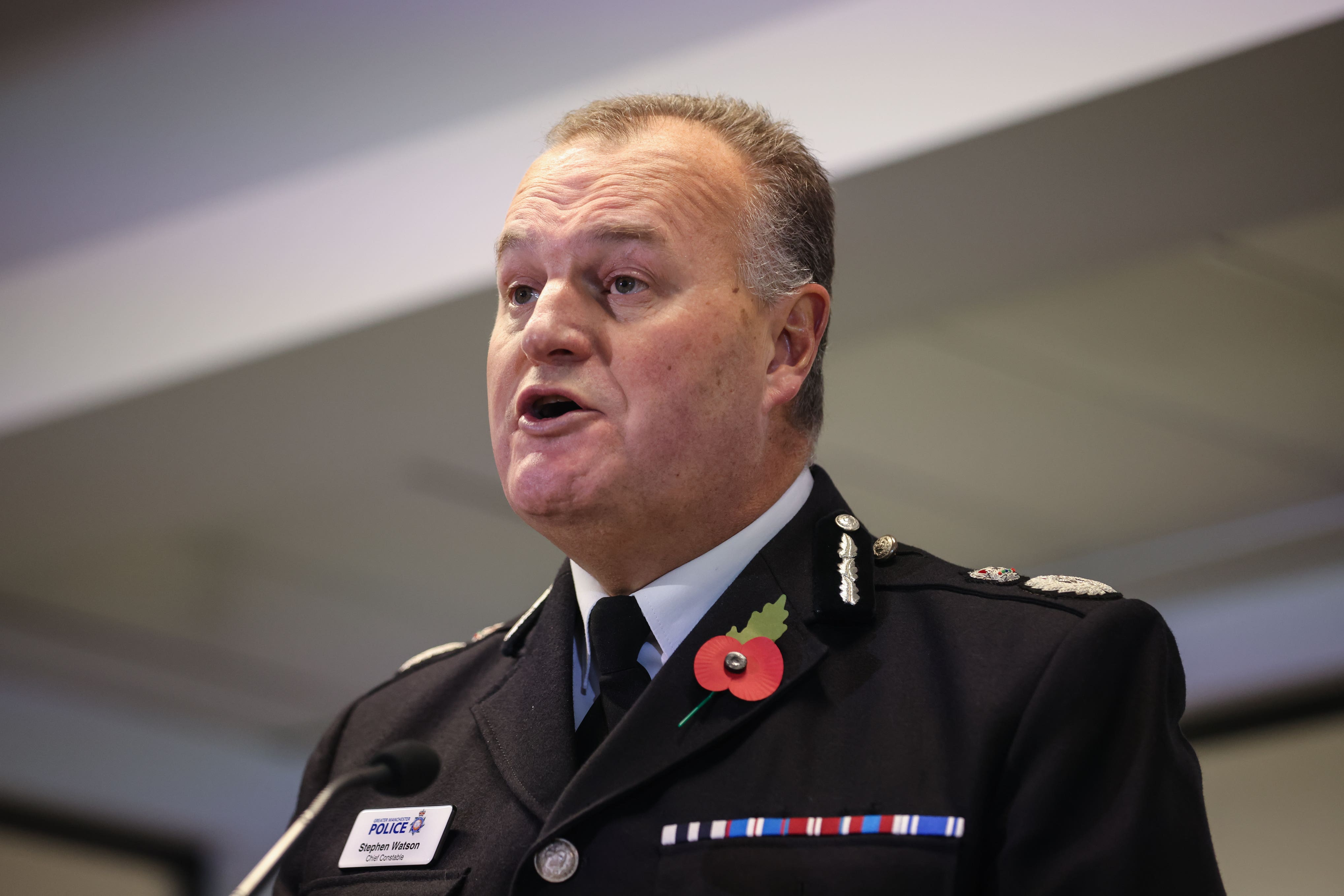Police chief: We must stop virtue-signalling online and get on with the job
Stephen Watson is among the most experienced senior officers in the country having joined Lancashire Constabulary in 1988 before going on to lead GMP.

Your support helps us to tell the story
From reproductive rights to climate change to Big Tech, The Independent is on the ground when the story is developing. Whether it's investigating the financials of Elon Musk's pro-Trump PAC or producing our latest documentary, 'The A Word', which shines a light on the American women fighting for reproductive rights, we know how important it is to parse out the facts from the messaging.
At such a critical moment in US history, we need reporters on the ground. Your donation allows us to keep sending journalists to speak to both sides of the story.
The Independent is trusted by Americans across the entire political spectrum. And unlike many other quality news outlets, we choose not to lock Americans out of our reporting and analysis with paywalls. We believe quality journalism should be available to everyone, paid for by those who can afford it.
Your support makes all the difference.The chief constable of England’s third biggest police force says officers must cease “virtue-signalling” on social media and get on with the job they are paid to do.
Stephen Watson replaced Ian Hopkins as the Chief Constable of Greater Manchester Police (GMP) in May 2021 after the crisis-hit force was placed in special measures in December 2020.
Mr Watson had blamed a “failure of senior leadership” for the force’s problems and promised a “dialled up muscularity” in his approach to crime, leading to GMP being moved out of special measures last month.
The public genuinely don’t care what I have for breakfast, or what my opinions are on contemporary social issues
The chief constable, who is seen as an ‘old school’ police chief after banning his officers from having tattoos visible while on duty, told The Times: “Using social media, in these very contested times, requires a particular skill.
“And it’s a skill that we do not have. So for the most part, regardless of our intentions, we tend to use social media badly,” he added.
“And actually, reaching out to communities is all too often perceived as virtue signalling. And, candidly, in some cases it is virtue signalling.”
The chief constable, who started his career with Lancashire Constabulary in 1988, said he had looked at officers’ social media and thought they should “get on with being the police because that’s what you are paid for”.
He added: “The public genuinely don’t care what I have for breakfast, or what my opinions are on contemporary social issues.”
Mr Watson was praised by the Home Secretary earlier this month, with Suella Braverman saying he “rejects woke policing”.
She added at the joint annual conference of the National Police Chiefs’ Council (NPCC) and the Association of Police and Crime Commissioners (APPC) on November 9: “The way to ensure public confidence in the police is to focus on getting the basics right.
“What I call ‘common sense policing’. The kind of policing the law-abiding majority deserves and expects.
“No politically correct distractions, just good old-fashioned policing – with a relentless focus on making our streets, homes and transport networks safer.”
Ms Braverman added: “Our police officers’ time is precious and the public want the police to be tackling crime, not debating gender on Twitter.”
Mr Watson appeared to agree, telling The Times: “I think that we are better served by dishing up to the public the things that they have every right to expect of us.
“And to just do that constantly, consistently, and to the exclusion of pretty much everything else.”
When he took over GMP, Mr Watson told Mayor of Greater Manchester Andy Burnham and other political leaders in the region he would turn the force around with a plan to make more arrests, go after serious criminals with “real ferocity” and investigate every burglary.
His Majesty’s Inspectorate of Constabulary and Fire & Rescue Services (HMICFRS) announced on October 28 that GMP had been moved out of special measures.
HMICFRS said the force was now responding to calls more quickly, giving officers more time to focus on bringing offenders to justice and more accurately recording crime.
GMP first entered special measures after a HMICFRS report revealed the force had failed to record 80,000 crimes.
The force will be inspected again during 2023.